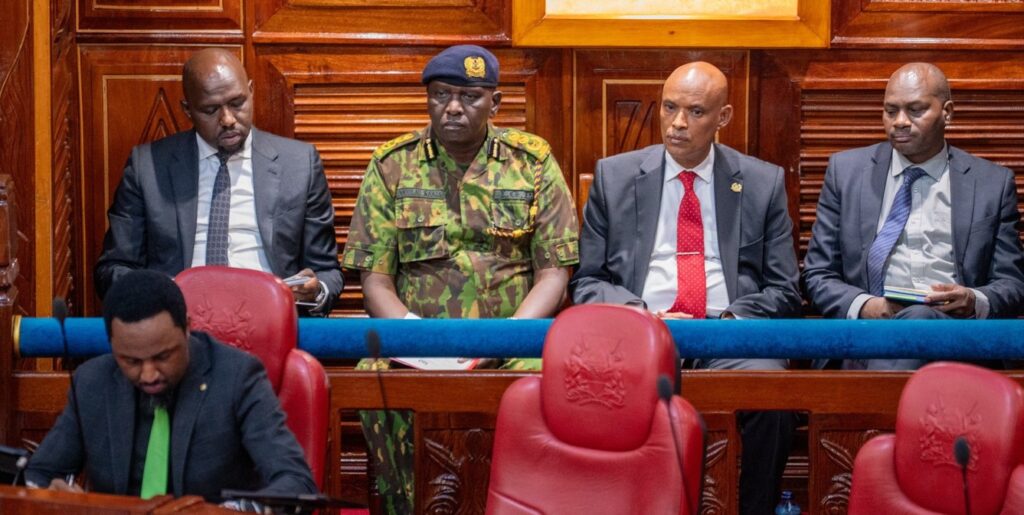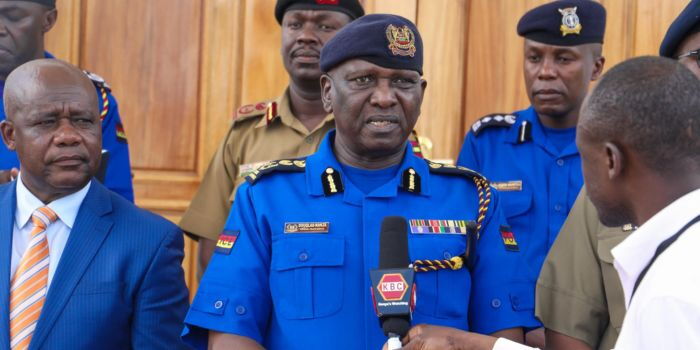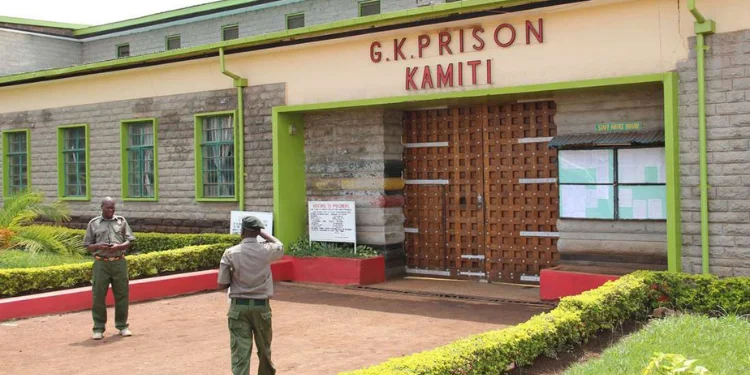In a dramatic showdown that has sent shockwaves through Kenya’s security landscape, Inspector General of Police Douglas Kanja Kirocho has openly defied a directive from Parliament’s Public Accounts Committee (PAC) to relinquish control of the National Police Service’s payroll—estimated at Sh60 billion—to the constitutionally mandated National Police Service Commission (NPSC).
On July 29, 2025, PAC Chair MP Tindi Mwale ordered IG Kanja and accounting officer Bernice Lemedeket to surrender all human resource—including payroll functions—to the NPSC immediately upon returning to their offices.
The committee demanded written confirmation from the NPSC CEO that the handover had occurred .However, IG Kanja countered the parliamentary order, arguing that payroll is an operational function under his domain and vowing “not to comply” with the handover directive—escalating tensions between the NPS and NPSC .
NPSC, the statutory employer of police officers, has accused the NPS leadership of denying it access to vital payroll records, effectively sabotaging its oversight and recruitment mandate.
During a PAC session, NPSC CEO Peter Leley testified that the commission has been unable to audit or verify staffing and remuneration, citing obstruction by police brass .PAC members expressed deep frustration, condemning claims by IG Kanja and Lemedeket of “working amicably with the commission” as hollow.

MP Nabii Nabwera asked, “Why deny the employer access to payroll data?” while MP Maryanne Kitany warned that clinging to unauthorized functions could land the IG in legal peril .
Despite the fierce parliamentary pushback, IG Kanja insists he remains a commission member, claiming this dual role legitimizes his retention of the payroll and HR control. He reiterated that the NPSC should be able to access payroll whenever necessary—yet remains firm on not transferring day-to-day control .
PAC has demanded that NPSC CEO Leley confirm in writing—within two weeks—that the transfer has been completed. IG Kanja is scheduled to appear before the committee again to confirm compliance or justify continued defiance .
This escalating dispute over authority has laid bare a serious institutional rift, raising urgent questions about accountability within Kenya’s security apparatus. Critics warn that the impasse could undermine constitutional order and jeopardize national security if not resolved swiftly.
As of August 4, 2025, the stand-off remains unresolved: IG Kanja stands his ground, while lawmakers and the NPSC demand full transfer of control over human resource functions and payroll. The coming days will determine whether the constitutional balance of power in policing is upheld—or forcibly shaken.
Why this matters:A vast Sh60 billion payroll is at the heart of the dispute.Parliament insists the NPSC must control HR functions per constitutional mandate.
IG Kanja’s resistance threatens the oversight role of the commission.The outcome could set a precedent in institutional accountability—and test Kenya’s democratic architecture.













Leave a Reply